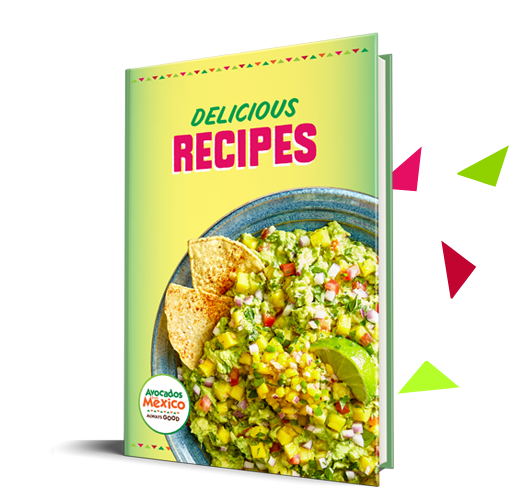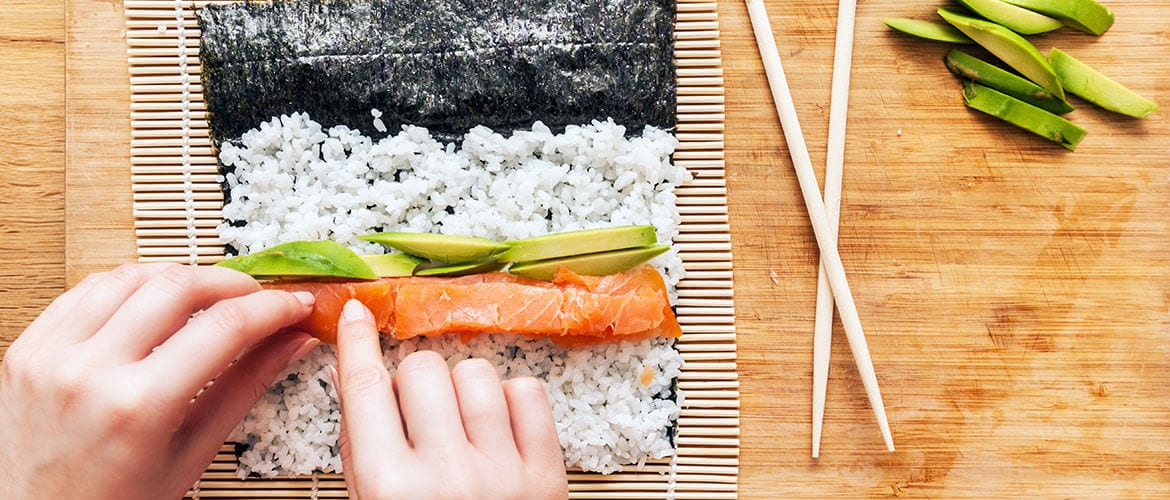We’ve all been there. Maybe you’ve just run a few miles, finished a Pilates class, or done so many burpees you want to cry. Then it hits you: You’re so hungry, you could eat a horse. Well, maybe just one of those smaller, Shetland pony-type horses. That horse-hungry feeling is your body is nudging you to refuel after a hard workout.
Here’s how it works: When you work out, your body uses stored glycogen and breaks down proteins in your muscles. Post-workout, your body starts to repair your muscles, and it needs certain foods as soon as possible to help accomplish this. (Most experts say to eat no later than 30-45 minutes after a workout.) And not just any food, but specifically foods that contribute carbohydrates, proteins, and good fats.
Avocados + You: A Love Story
You won’t find unrequited love here! Avocados are the ideal dietary post-workout partner. A creamy texture, mild taste, and good fats make them an irresistible choice for some of your favorite dishes. But the green goodness doesn’t stop there. Avocados also have nearly 20 vitamins and minerals. Good things happen when you add avocado to your everyday routine. Learn more about how this heart-healthy fruit loves you back.
Avocados are an excellent post-workout snack because they are nutrient-dense and a source of good fats. Combine it with other sources of carbs and proteins, and you’ll have yourself the perfect post-workout snack.
7 Avocado Post-workout Snacks
1. Avocado Smoothies
If you’re craving something sweet, make this Avocado, Banana, Orange, and Yogurt Smoothie with Greek yogurt. Bonus points for using plain Greek yogurt and stirring in a little vanilla extract for fewer refined sugars.
For an extra dash of protein, try this Chocolate Avocado Protein Smoothie. It calls for coffee-flavored Greek yogurt at its base, making it a perfect addition to your morning workout routine.
2. Avocado and Eggs
Pairing avocados with eggs is a great choice, because eggs are a complete source of protein. Try this avocado and egg “pizza” for a scrumptious post-workout snack.
3. Avocado Hummus
In a dipping mood? Try this avocado hummus with whole-wheat pita and raw vegetables. The chickpeas contain protein and carbs, and the avocado gives the dip a creamy texture.
This Trick Is 🍌🍌🍌
You haven’t experienced true longing until you’ve found the perfect avocado recipe … but must wait for this delectable fruit to ripen. Patience is a virtue, but — lucky for you — it’s not one you have to grapple with today! Here’s how to ripen an avocado overnight:
4. Avocado Deviled Eggs
These Avocado Deviled Eggs With Red Pepper are an egg-cellent snack to have on hand after a workout. You’ll get creamy, well-seasoned avocado in every bite.
5. Celery Sticks
If you’re looking for something quick and light, whip up a batch of these Celery Sticks Stuffed With Avocado. This is the perfect snack after a hot, high-intensity workout. Mashed avocado blended with sour cream, hot sauce, and garlic is a cool, savory treat.
6. Stuffed Avocado
Need more than a snack but not quite ready for a meal? These Stuffed Avocados grant you half an avocado, black beans, and shredded queso. Simplicity has never tasted so good!
This Tuna Salad-Stuffed Avocado is another great choice. Tuna is a delicious protein, and packing it into an avocado allows you to get a mouthful of the smooth fruit with each bite.
7. Avopinchos
With 14 g of protein per serving, these avopinchos are a solid snack. They’re like little skewers of deliciousness.
How to Pick #AlwaysGood Avocados
When you’re planning your weekly workout routine, you can make sure you’ve got an avocado that will be ready for each day. Here’s the secret: Buy them in various stages of ripeness.
- Dark Avocados: Dark green, almost black avocados that yield to gentle pressure are perfect to eat today or tomorrow. Keep dark avocados in the refrigerator if you’re not quite ready to eat them.
- Green Avocados: Green avocados will be ripe and ready in a few days. Store them on the counter if you’re looking to eat them soon.
- Bright Green Avocados: Avocados that are bright green and firm will be ready toward the end of the week.
Here’s a breakdown of avocado stages of ripeness:
Keep ‘Em Green
You’ve made a delicious snack, and now there’s a perfectly good avocado half staring back at you. You feel oddly responsible to preserve this green goodness. We get it. Luckily, you have options! Here are two ways to save half of an avocado for your next post-workout snack:
- Coat the avocado flesh with lemon or lime juice and tightly secure it in plastic wrap before putting it in the fridge.
- Submerge the exposed half in water in a glass or plastic container and slide it in the fridge. It’ll hold for approximately two days.
Continue the journey to our avocado recipe page for more post-workout snack inspiration.
YOU MAY ALSO LIKE
3 Avocado-Sushi Combos (that Aren’t California Rolls)
Everything You Need to Know about Cooking with Avocado Oil
Grilling Avocados: What You Need to Know
Want even more avocado info?
Provide your email address to download
a free recipe e-book.












